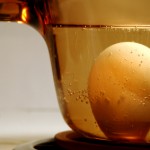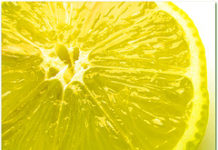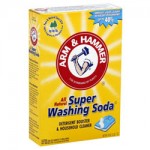

Get rid of all your coated nonstick pots and pans. But don’t stop there. Be on the lookout for the nonstick chemical polytetrafluorethylene (PTFE), used on cookware. Watch out for “nonstick” labeling and ask if the coating is PTFE, no matter what the brand. Most manufacturers offer a variety of different types of pots and pans. When you do replace yoru pans, choose cast iron, stainless steel, or enamel iron.
The more inert the cookware, the better.
Use These
* Glass – the most inert
* Stainless steel
* Well-seasoned cast iron
* Porcelain-coated cookware, also called enamel
* Anodized aluminum
Avoid These
* Nonstick coated surfaces
* Aluminum (acidic foods can cause aluminum to leach from the pan)
* Plastic-handled cookware
Here is Why
When heated to between 680 and 930F–scorching heat–the fluoropolymers used in chemical nonstick finishes degrade into several undesirable substances, including trifluoroacetate (TFA), a subsance highly toxic to plants. Other problematic chemicals recently found in almost all blood samples taken by the Red Cross include perfluorinated acids and perfluorooctanic acid (PFOA), used in many nonstick and stainproof formulas. PFOA was found in the umbilical cord blood of 99 percent of 30 babies born at Johns Hopkins Hospital in 2004.
An independent scientific review panel advising the EPA recently announced that PFOA should be considered a likely carcinogen. In a voluntary agreement with the EPA, eight major manufacturers have agreed to eliminate 95 percent of PFOA emissions by 2010, though they will continue to use the chemical in making nonstick finishes.
From True Food, by Annie Bond, Melissa Breyer, and Wendy Gordon (National Geographic, 2010).



